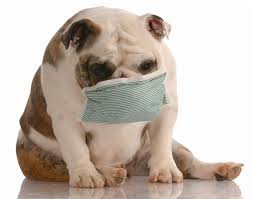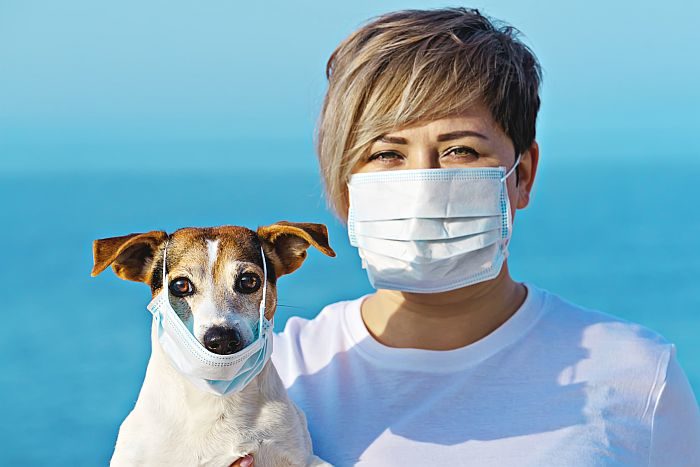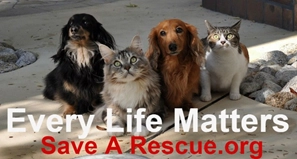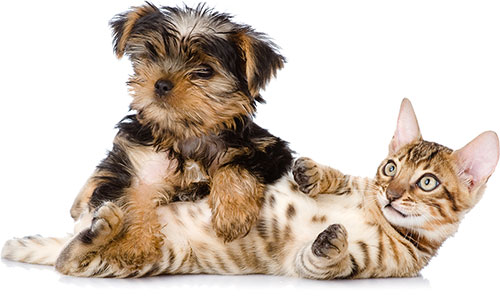COVID-19 and Animals
May 22, 2020
This is an article released by the CDC. It is our latest knowledge and update from these experts.
Key Points
- We do not know the exact source of the current outbreak of coronavirus disease 2019 (COVID-19), but we know that it originally came from an animal source.
- At this time, there is no evidence that animals play a significant role in spreading the virus that causes COVID-19.
- Based on the limited information available to date, the risk of animals spreading COVID-19 to people is considered to be low.
- We are still learning about this virus, but it appears that it can spread from people to animals in some situations.

Coronaviruses are a large family of viruses. Some coronaviruses cause cold-like illnesses in people, while others cause illness in certain types of animals, such as cattle, camels, and bats. Some coronaviruses, such as canine and feline coronaviruses, infect only animals and do not infect humans.
Risk of Animals Spreading the Virus that causes COVID-19 to people
Some coronaviruses that infect animals can sometimes be spread to humans and then spread between people, but this is rare. This is what happened with the virus that caused the current outbreak of COVID-19. However, we do not know the exact source of this virus. Public health officials and partners are working hard to identify the source of COVID-19. The first infections were linked to a live animal market, but the virus is now spreading from person to person.
The virus that causes COVID-19 spreads mainly from person to person through respiratory droplets from coughing, sneezing, and talking. Recent studies show that people who are infected but do not have symptoms likely also play a role in the spread of COVID-19. At this time, there is no evidence that animals play a significant role in spreading the virus that causes COVID-19. Based on the limited information available to date, the risk of animals spreading COVID-19 to people is considered to be low.
Risk of People Spreading the Virus that Causes COVID-19 to Animals
The first US case of an animal testing positive for COVID-19 was a tiger at a NY zoo.
We are still learning about this virus, but we know it is primarily spreading from person-to-person and it appears that it can spread from people to animals in some situations.
The 1st case external icon in the United States of an animal testing positive for the virus that causes COVID-19 was a tiger with a respiratory illness at a zoo in New York City. Samples from this tiger were collected and tested after several lions and tigers at the zoo showed signs of respiratory illness. Public health officials believe these large cats became sick after being exposed to a zoo employee who was infected with the virus that causes COVID-19. This investigation is ongoing.
CDC is working with human and animal health partners to monitor this situation and will continue to provide updates as information becomes available. Further studies are needed to understand if and how different animals could be affected by COVID-19.

Q: If I get infected will we have to quarantine our pets too?
A: Yes, just like humans, some might be quarantined at a hospital. Or a shelter. Or even a doggy day care. If they had the virus but weren’t sick, you could quarantine them at home. You’d want to limit your contact with them. Perhaps keep them in a bedroom away from other people and animals. You’d want to wash your hands frequently, and perhaps wear a mask when you entered the room.
Q: If you have people in the same house—some quarantined, some not—can the pet visit both?
A: No. Out of an abundance of caution, the answer should be no.
Q: What should we be doing right now to protect our pets?
A: It is important to include pets in your family’s preparedness planning. If you get sick and are quarantined, you should make sure you have extra pet food on hand. And you should make your neighbors aware of any feeding, walking, or medications that your pets need in case you can’t make it back home. Get prepared now. food on hand. Even if he doesn’t need it [soon], he’s going to eat it eventually.







